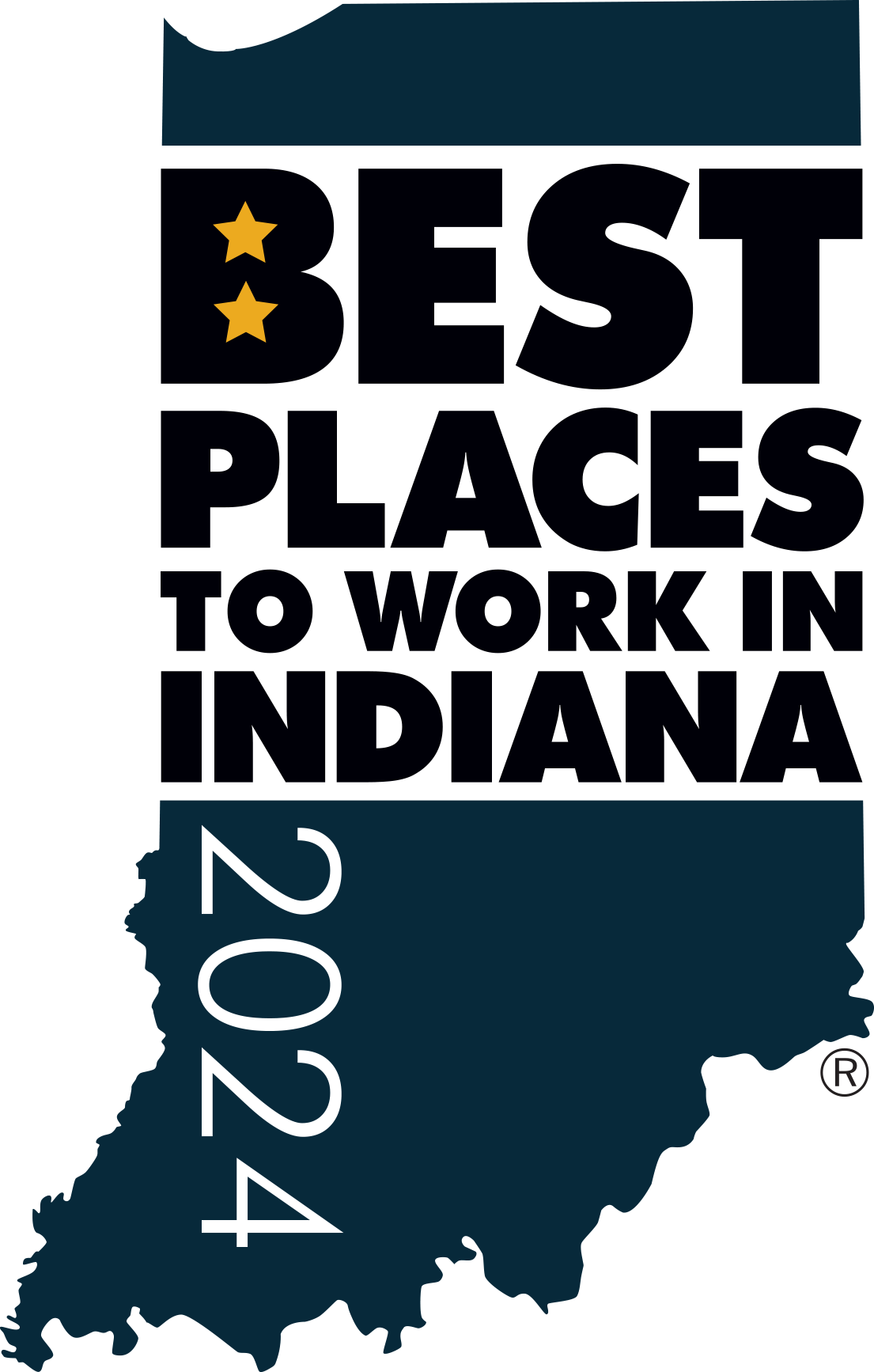Indy CFO Spotlight-Joe Allman
KB: Joe, it’s great to see you.
JA: Thanks.
KB: You’ve had a non-traditional journey to the CFO seat. Let’s talk about that.
JA: You’re right. I attended the U.S. Coast Guard Academy, which is in New London, CT. I pursued the Coast
Guard Academy due to a couple of other family members that had attended a Service Academy and the Coast
Guard’s overall mission.
KB: Where were you assigned post-graduation?
JA: Upon graduation, I earned a Commission as an Officer and my first duty assignment was on a ship in the
Portsmouth, VA. After a couple of years in Virginia, my second tour was in New Orleans, LA. I was a junior officer
in the Marine Safety Office, Investigations and Inspections.
KB: How did you transition from the MSO New Orleans to Deloitte?
JA: Well, I certainly was a non-traditional hire for Deloitte. With a B.S. in Management from the Academy I
wanted to be prepared to sit for the CPA exam when I eventually left the Coast Guard. I took graduate classes
in accounting and business law to prepare myself for the transition. I was determined to join the ranks of one of
the Big Four accounting firms. I was drawn to the structure and leadership opportunities of a career in public
accounting.
KB: Got it. Makes sense.
JA: I gained fantastic experience at Deloitte, working on most of their public company clients in Indianapolis.
One of those clients was Republic Airways. Republic always had something interesting going on – one of which
was their IPO. That reminds me of an interesting story. It was in the fall of 2001, and the CFO and our team from
Deloitte were on the way to New York for a IPO drafting session. We departed on the 6:45AM flight and it was a
beautiful fall day. As we made the approach into LGA, we flew over the tip of Manhattan near the World Trade
Center and we were able to see one of the towers on fire. Looking back at it, no one on the plane – including the
flight crew – really knew the gravity of what we witnessed.
KB: Holy smokes. What did you do?
JA: Once we landed, we made our way into the airport and saw the second tower get hit from the local news
coverage. At that point, it was clear the IPO was off the table and we shifted to survival mode. We wanted to be
back home with our families. We hopped in a cab but didn’t make it that far. The streets were gridlocked and
there was very little chance our cabby was going to stay with us. He drove us to a nearby rental car facility in
Flushing and we drove through the night back to Indianapolis.
KB: Of course, Republic eventually did the IPO?
JA: Yes, it took about two and half years for the business to regroup. In May 2004, Republic went public.
KB: So, what led you to leave Deloitte and move to London Witte?
JA: I left Deloitte for London Witte in the fall of 2005. My wife’s uncle was a partner there and he was planning
his retirement. We had a plan for me to purchase his portion of the practice. In the Spring of 2007, Republic’s
CFO called me unexpectedly. He informed me that he needed a Controller and I knew the industry and
leadership team. It was an opportunity I could not pass up and was a great entry point for me, but ultimately not
my end goal. I wanted a position that would introduce me to areas of the organization outside of accounting.
Not long after joining Republic as Controller, I made the move to Vice President of FP&A.
KB: That was a good move.
JA: Yes, the FP&A role exposed me to the entire business. I was able to collaborate with the department leaders
in the Company and that opportunity put me in a position to the CFO chair in August 2015. I think my broad
organizational exposure prepared me for the CFO role. In business today, the CFO has to be prepared to
comprehend and respond to business issues beyond finance, accounting, tax, reporting and treasury. I’ve
always focused on being balanced in my approach and focus on being an effective communicator.
KB: Tell me about that.
JA: Well, when I took the CFO role the Company was in an untenable situation. We were in the midst of a deep
labor dispute with our pilots and we were losing pilots at a very rapid pace. Honestly, it was a low point for our
Company and associate morale. It was challenge and opportunity for leadership, trust, and culture changes to
transform the Company. In late October, we finally reached a labor deal with our pilots and it was as if someone
flipped a light switch. The negativity and low morale across the organization lifted, but we still had significant
challenges in the business. The pilot deal increased our operating costs and we needed contractual
modifications to our only source of revenues – the fixed-fee revenue contracts with American, Delta and United.
After several months of negotiations, it became clear that we were not going to be able to restructure the
business outside of the courts and we filed for reorganization in February 2016. Our goals were simple: reduce
the fleet, secure amended flying agreements, and simplify our fleet to a single operating certificate and single
fleet of aircraft. We emerged from bankruptcy in April 2017.
KB: You’re in a unique industry, and you’ve had some business challenges. How does that impact attracting and
retaining talent?
JA: We focus on our associate workplace culture and making the office a fun. At Republic, we are a family. I also
have a great supporting cast under me that are aligned with our corporate the goals and objectives. Employee
engagement in settings inside and outside of the office is critical to our success – work hard, play hard. One of
the biggest threats to our business is the availability of qualified pilots and technicians to staff the airline. The HR
team is reaching deeper into area high schools to create industry awareness and knowledge of the potential
career opportunities at Republic. The industry has turned a corner the last couple of years.
KB: What’s the culture like?
JA: It’s a fun, fast-paced team environment. We focus on building trust, respect and care for one another. I
guess we recognize that we are reliant on everyone rowing in the same direction. There are so many things that
can go wrong on a daily basis. Some items we cannot control like weather, and other items we do control like
mechanical issues. Any disruption in service can create a negative customer experience. There is so much
human interaction in what we do; and for me, it is that emotional element that makes this industry stand out
from others. At the end of the day, we are moving people from point A to point B…. but our service model can be
disrupted in an instant. Every associate at headquarters including the Finance team can make a positive impact
on our front-line associates and help ensure we deliver a safe, clean and reliable flight.
KB: Please expand on that.
JA: This is a capital intensive and cost-centric business. Many of our decisions require a cost/benefit
analysis. However, not every decision can be made on the total dollar increase to cost or capex. You have
to balance decisions across a multitude of factors. We always have the requisite financial analysis
prepared (NPV, payback, IRR, etc.), however, I want to understand how we’ve evaluated the expected
impact to our key stakeholders: the associates, our business partners, and our shareholders. Most finance
professionals can prepare the initial analysis, but very few can articulate the expected impacts to key
stakeholders. Those that can – stand out from the rest.
KB: What do you look for in hiring a finance or accounting person?
JA: We’re always interested in finding our future leaders. We are expanding our investment in predictive
analytics and FP&A. We continue to build-out these teams of finance professionals. They’re not easy to find.
Airlines have literally thousands of data points you can collect. Everybody will tell you they can analyze. But can
they really do it? Can they articulate their findings and demonstrate a thorough understanding of the project?
Can they truly speak through their own work? Communication skills are also critical and an area that I see
lacking.
KB: What’s your favorite movie:
JA: I’m a huge basketball fan. Hoosiers is my favorite movie. It touches on the dynamics of both the team and
individual contributors.
KB: What’s your favorite quote?
JA: I would go back to my Coast Guard days. “Service before self.”
KB: What’s your favorite book?
JA: I like history. Right now, I’m reading “Team of Rivals” by Doris Kearns Goodwin.
KB: How do you define excellence?
JA: I think it’s ultimately a measurement set by exceeding other’s expectations, therefore it is extremely
important to have clarity on expectations. In understanding what excellence is, you have to understand how
your audience defines it and then deliver it to them repeatedly. However, you can’t become complacent and
make assumptions – you have to understand what/how/why and when their expectations change.
KB: What advice would you give your younger self?
JA: Stay committed to your goals, and strive for excellence. Remain humble, lead by example and find mentors
and relationships that support the achievement of your goals.
KB: Speaking of mentors, who are a couple of your more influential mentors?
JA: I have had some fantastic mentors in my professional career. Several of the partners that I worked with at
Deloitte were instrumental in my success. I am sure some of the readers may recognize some of those names:
Mike Becher, John Shehorn and Bob Colin. I’d also be remiss if I didn’t mention Duane Mercer at London Witte
Group – he supported my decision to leave public accounting and move to Republic. Lastly, my family and my
faith have also been instrumental. My wife is extremely supportive, and a strong family unit centered around
God has been a cornerstone of my success.
KB: Joe this is great; thank you.
JA: My pleasure.

